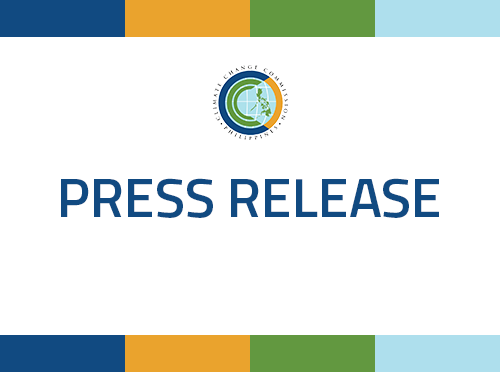
September 23, 2021 Thursday

MANILA, 24 September 2021 — In celebration of World Bamboo Day last September 18, the 63rd episode of “Stories for a Better Normal: Pandemic and Climate Change Pathways” featured stories and good practices of bamboo propagation and utilization to promote greater support for the bamboo industry in the Philippines.
The online conversation, conceptualized and hosted by three-term Senator, now Deputy Speaker and Antique Representative Loren Legarda, featured guests including Atty. Dulce Punzalan, World Bamboo Ambassador and Climate Reality Leader; Dr. Cora Claudio, Convenor-Chair of the Climate Action & Sustainability Alliance or CASA; and Rica Villanueva Gadi, CEO of Bamboo Bootcamp.
“Ang isa sa matibay na kasangga para mapagaan ang epekto ng pagbabago ng ating klima ay ang kawayan. Bamboo provides a low-carbon alternative to materials including timber, cement, and steel. It draws natural nitrogen from the soil, and does not add any chemicals to it...Bamboo does not require replanting after harvesting, takes only five years to be harvested, is 100% biodegradable, and stores up to 600 tons of carbon per hectare, according to the ASEAN post” said Legarda.
"Sa usapin ng climate change, ang bamboo ay may kakayahang mag-absorb ng carbon mula sa hangin na siyang tinutukoy na isa sa mga pangunahing dahilan ng pag-init ng mundo or global warming leading to climate change. Ayon sa DENR, maliban sa pagiging carbon sink o sequesterer of carbon, ang bamboo ay nakakapagproduce din ng 35% more oxygen than other trees that are equivalent to their size," said Commissioner Rachel Anne S. Herrera, who co-hosted the episode.
Atty. Punzalan presented the different aspects of the creativity of bamboo for sustainable development. She introduced programs and activities spearheaded by their organization, including the Kawayan 7 Modern Bamboo Band, or “Kawayan para sa Kalikasan, Kabuhayan. Kaunlaran Kalusugan, Kasaysayan, Kultura at Kapayapaan.” The band creatively highlights the synergy of bamboo’s environmental and socio-economic impact, climate resilience and adaptability for sustainable development, indigenous and grassroots community empowerment, social inclusion and preservation of cultural heritage and peace.
“It is estimated that there are more than two billion hectares – that is nearly 5 billion acres – of deforested and degraded land around the world. We’ve heard about planting trees, yes, but it is time to plant bamboo. Bamboo is resilient and adaptable – with immense biodiversity. Bamboo can restore degraded land, mitigate climate change, and alleviate poverty. It is time to plant bamboo,” said Atty. Punzalan.
Dr. Claudio shared the different applications of bamboo in food, construction of houses, transport, furniture and fixtures, clothing, health products, creative arts, and bioenergy. She also highlighted the importance of natural capital accounting, and the reforestation and protection of bamboo plantations and livelihoods as part of our natural assets.
"There are a lot of challenges to do, but let's think hard, talk together, and act now with bamboo for a RICH––or Regenerative, Inclusive, Climate-smart, and Healthy––sustainable development in our blue planet," said Dr. Claudio.
Gadi introduced “Bamboo Bootcamp,” a non-profit that provides short-term training on the potentials of bamboo in the rehabilitation and reforestation of degraded lands, environmental protection and disaster risk reduction, development of sustainable bamboo-based industries, and establishment of livelihood for local communities. The Bootcamp site is found on the hills of Marilog District in Davao, in community with the Matigsalug, the original inhabitants of the Salug River (now called the Davao River).
“I’ve also made a transformation with bamboo. I’ve come from a BPO background, I’ve been in front of a computer for 16 hours a day, and now I spend my time in forest bathing, being able to balance both worlds and being able to offer sustainable livelihood in both sectors is also rewarding for myself,” said Gadi.
As an online discussion to promote health, environmental consciousness, and climate-adaptive practices, "Stories for a Better Normal" aims to change the mindset of individuals, families, and communities by demonstrating ways in which a ‘better normal’ can be realized within our communities.
This online discussion is organized in partnership with the Office of Deputy Speaker Legarda and support from the Department of Education, Philippine Information Agency, Institute for Climate and Sustainable Cities, The Climate Reality Project-Philippines and Mother Earth Foundation.